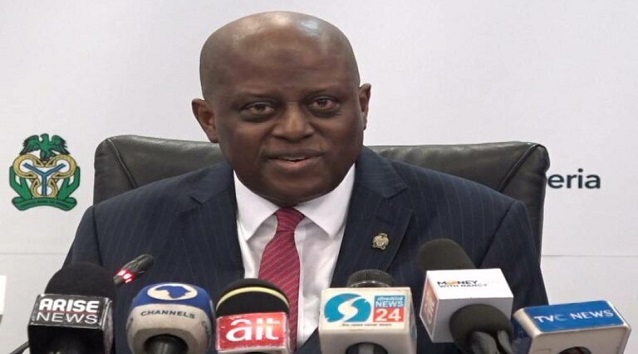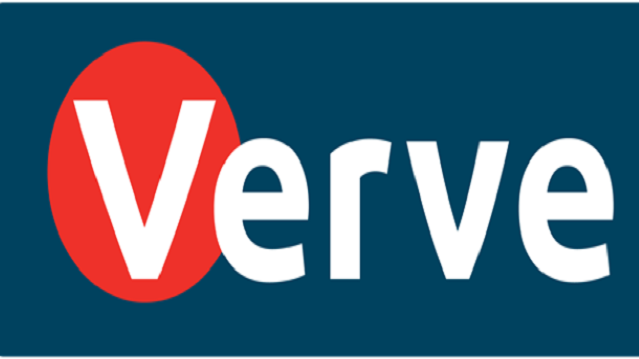E-Financial
CBN Directs Banks to Take Measures to End Cash Scarcity

The Central Bank of Nigeria (CBN) has directed Deposit Money Banks (DMBs) to ensure efficient cash disbursement to the general public over-the-counter and through Automated Teller Machines (ATMs).

The CBN directive is coming in the midst of complaints of acute scarcity of cash by bank customers across the country.
Most banks have failed or refused to load their ATMs with cash while they are also rationing out payments over the counter.
As a result, most Nigerians are now relying on POS operators for their cash needs.
In response, the POS operators have also jacked up their commission by between 50 and 100 per cent across the country.
The POS operators claimed that they have had to jack up their commission because of the high rates they are also getting the cash supplies from various sources, including traders and filling station operators.
However, in a directive contained in a statement jointly signed by CBN’s Acting Director, Currency Operations, Muhammed Olayemi, and Acting Director, Branch Operations, Aisha Isa-Olatinwo on Wednesday, CBN directs banks to take measures to tackle the cash scarcity challenge.
The apex bank also urged members of the public who are unable to obtain cash, either over-the-counter or through ATMs to report such instances using designated reporting channels and formats.
“This will assist the CBN in addressing issues hindering the availability of cash and further improve currency circulation.
“For DMB branches and ATM locations not dispensing cash, members of the public affected are to provide the relevant details,” it said.
It said that the required details should include account name, name of the DMB, amount, time, and date of incident.
It urged aggrieved bank customers to use dedicated phone numbers of the CBN branche in the state where the incident occurred or through to designated email addresses.
E-Financial
Sterling Bank Reiterates Transfer Fees Removal

Sterling Bank has eliminated transfer fees on its digital banking platform in a significant move that changes the dynamics of the Nigerian banking sector.

This decisive move makes Sterling the first major Nigerian bank to forgo earning a cut from customer transactions on its own app.
The initiative marks a turning point in the industry and reflects the bank’s deep-rooted commitment to building a future where banking is affordable, accessible, and in tune with the everyday needs of Nigerians.
Abubakar Suleiman, chief executive officer of Sterling Bank, explained that the decision stems from years of digital transformation.
“The bank built a custom callback system capable of handling over five million customers, already processing more than 180 million transactions.
It also migrated entirely from a legacy European core to a homegrown platform built for scale, and deployed a private cloud environment with capacity well beyond current and future demand,” he said.
According to Suleiman, we have engineered a platform that can support 50 times our current customer base without breaking a sweat. It is time to pass the benefits of that transformation back to the people.
He added that “the zero-transfer-fee policy applies exclusively to users of OneBank, Sterling’s flagship digital app. New customers who sign up before April 30 will also receive a complimentary AfriGo debit card and lifetime access to fee-free transfers.”
Suleiman said, “we are taking sides with the customer, with the small business owner, with every Nigerian tired of being nickel-and-dimed by the system.”
Obinna Ukachukwu, growth executive leading the Consumer and Business Banking Directorate, said the policy is both a reward for loyal customers and an invitation to new ones.
“We owe this to the customers who stuck with us through our transformation journey and we are also opening the door to anyone ready to bank differently,” he noted.
He added that Sterling’s next steps would involve layering on even more value in the months ahead, targeting both individuals and businesses with tools that improve financial well-being and fuel economic growth.
“We still bear a portion of the transaction costs, including fees payable to other banks. But we are doing this because we believe it is right. And if others in the industry follow suit, we all win,” Ukachukwu concluded.
Sterling Bank is a forward-thinking financial institution committed to transforming lives through innovative solutions, exceptional service, unwavering integrity and a steadfast focus on its HEART strategy.
As pioneers in digital banking and financial inclusion, Sterling continues to lead by example, proving that purpose-driven leadership can unlock transformative outcomes for individuals, businesses, and society at large.
E-Financial
Verve Expands Payment Frontiers with Global Partnerships, Contactless Innovation

Verve, Africa’s domestic payment and token brand, has fortified its digital payments through a series of strategic partnerships and technological advancements.

The brand remains committed to providing seamless and secure transactions across a growing network of acceptance points.
As part of its global expansion, Verve has recently partnered with leading international and regional payment platforms, including Temu, AliExpress, PalmPay, and FortisPay. These integrations enhance Verve cardholders’ access to global e-commerce marketplaces and digital payment solutions, reinforcing the brand’s mission to facilitating easy transactions across borders.
Building on this momentum, Verve has also accelerated its adoption of contactless payment solutions, strengthening its presence across key fintech and payment service provider platforms, including Opay, PalmPay, Global Accelerex, Interswitch, and Paystack terminals. This development aligns with the growing demand for faster, more secure digital payment methods, benefiting both merchants and consumers.
Commenting on these milestones, Vincent Ogbunude, Managing Director, Verve International, stated: “At Verve, we remain committed to driving innovation in digital payments while ensuring our cardholders enjoy secure and hassle-free transactions. Our recent integrations with global e-commerce platforms and the growing acceptance of our contactless solutions reflect our dedication to advancing financial inclusion and enhancing payment experiences.”
With over 75 million Verve cards issued to date, the brand continues to expand its footprint across ATMs, PoS terminals, online, agency banking outlets, e-commerce platforms, and mobile applications.
As Verve consolidates its leadership in Africa’s payment ecosystem, it remains focused on delivering cutting-edge solutions that empower individuals and businesses to thrive in an increasingly digital economy.
E-Financial
Nigeria to Exit Grey List Soon – SEC

Nigeria may soon exit the Financial Action Task Force (FATF) grey list, Emomotimi Agama, director-general, Securities and Exchange Commission (SEC), has said.

Emomotimi Agama, DG, SEC
This is with the inclusion of digital assets regulation in the recently signed Investments and Securities Act (ISA) 2025.
Speaking in Abuja, Agama noted that the inclusion of digital assets in ISA 2025 provides the country with a strong platform to exit the grey list, as the new law aims to curb fraudulent activities in the digital space while fostering trust and innovation in blockchain technologies.
President Bola Ahmed Tinubu recently signed the ISA 2025 into law.
Nigeria was placed on the FATF grey list (indicating increased monitoring) on February 24, 2023, due to deficiencies in its anti-money laundering (AML) and counter-terrorism financing (CFT) regime.
According to Agama, “It may interest you to know that the AML/CFT issue is what brought about our inclusion in the grey list. The inclusion of this law today provides us an avenue to exit that grey list, and that is very critical to the international community. We are telling the world that Nigeria is open for business and committed to protecting all legitimate business operations within the country.”
He emphasized that trading in cryptocurrencies does not equate to a weaker naira, adding that the Commission will provide regulatory guidance to ensure activities in the space align with national interest.
“The SEC now has the power to clamp down on unregulated entities. We encourage everyone in this space to come under regulation, seek clearance, and obtain guidance.
“We are ready to provide the needed support to ensure national economic interests are protected. Clarity in the law will give market participants confidence and security,” he said.
Agama explained that the essence of regulation is to create protective boundaries around institutions, products, and individuals to prevent illegal practices.
He also highlighted collaboration with key agencies including the Central Bank of Nigeria (CBN), Economic and Financial Crimes Commission (EFCC), Nigeria Financial Intelligence Unit (NFIU), and the Office of the National Security Adviser.
“We are working collectively to ensure that this sector does not become inimical to Nigeria’s existence. Proper guidance is essential, especially because every investment – digital or traditional – carries risks. Managing that risk is our priority,” he said.
He further disclosed that the SEC is currently implementing moderated regulation, noting that it is not feasible to issue licenses to all applicants at once.
“We have two programmes: the Regulatory Incubation Programme and the Accelerated Incubation Programme. These are tools to evaluate the risks posed by institutions to the Nigerian economy and its citizens. We will release the next cohort in the coming quarter, after reviewing the progress of the previous cohorts,” he said.
To address regulatory challenges, Agama said the Commission is introducing risk management as a legal instrument to guide capital market operators and security issuers in mitigating future risks.
“This move will enhance investor confidence and protection. We have also strengthened Know Your Customer (KYC) processes through this risk management framework to distinguish genuine investors from those with malicious intent,” he added.

 Broadcasting3 days ago
Broadcasting3 days agoStarlink, DStv, Others Pay “Peanuts” to Operate in Nigeria- Minister

 E-Financial3 days ago
E-Financial3 days agoNigeria to Exit Grey List Soon – SEC

 E-Business3 days ago
E-Business3 days agoReliance Infosystems Urges C-Suite Executives to Embrace AI

 E-Business3 days ago
E-Business3 days agoFG to Make Citizen Registration Mandatory under any Circumstance

 News3 days ago
News3 days agoZinox Technologies, TETFUND Collaborate for Tech-Driven Sustainable Future in Tertiary Schools

 General News2 days ago
General News2 days agoAFD Commits €3m to Africa’s Financial Inclusion

 E-Business3 days ago
E-Business3 days agoSecurity Operatives Arrest Suspects behind Illegal NIN Collection in Exchange for Money

 E-Business3 days ago
E-Business3 days agoFG to E-Visa System in May 1 to Boost Border Security, Streamline Travel



























